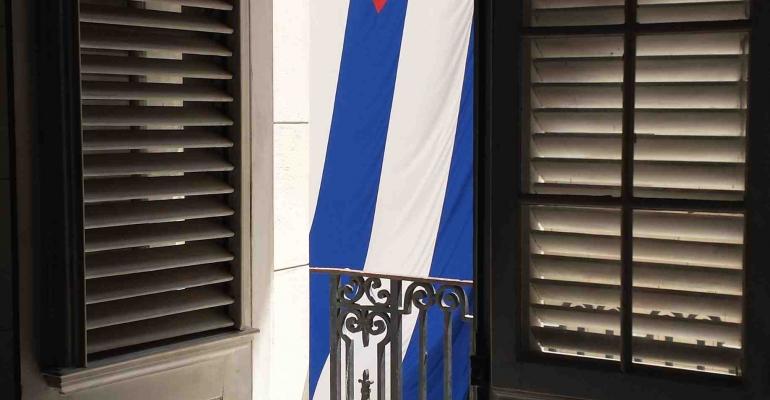The increased deployment to Cuba has come amid uncertainty about President Trump's views on Cuba policy.
In a blog John Kavulich, president of the US-Cuba Trade and Economic Council, ponders whether the chief executives of Carnival Corp. & plc, Royal Caribbean Cruises Ltd. and Norwegian Cruise Line Holdings are 'presenting a dare to the president of the United States or enticing the president’s corporate salivary gland?'
Kavulich asks if the cruise line ceos' decisions are based on 'direct or implicit authorization (encouragement) from the Trump administration? Or, are they using a traffic light as their guide: currently it’s green and has not changed to yellow, so no reason to presume it’s going to become red?'
The New York-based US-Cuba Trade and Economic Council analyzes commercial, economic and political relations between the two countries for members in business sectors including agriculture, banking, construction, food service, manufacturing, real estate and transportation, to name a few.
The cruises by ships belonging to the three corporations could carry more than 185,000 passengers, generating gross revenues of $210m, Kavulich estimates. He calculates those passengers may spend approximately $25m in Cuba (about $140 per person for organized/non-organized excursions including tours, transportation, meals, sundries and souvenirs), and vessel port charges could exceed $6m.
In his blog Kavulich speculates whether the Trump administration has 'decided to lead from behind' and let the 'presumed corporate DNA' of key figures like the secretaries of commerce, state, treasury, transportation and the National Economic Council prevail.
He suggests a 'reasonable calculation that the commerce-embracing Trump administration will not disrupt' most Cuba commercial activities by the at least 47 US companies that last year had combined global gross revenues of approximately $974bn and employed approximately 2m people in the US and abroad.
But Kavulich also thinks that rather than the US implementing a 'strategy' for Cuba, the relationship between the two countries may continue to revolve around 'moments' and how Cuba reacts to those.
Much depends on the two US senators from Florida, Marco Rubio, a Republican of Cuban descent, and Bill Nelson, a Democrat, along with three US representatives of Cuban descent whose districts in Florida are where the cruise lines operate, Republicans Ileana Ros-Lehtinen, Mario Diaz-Balart and Carlos Curbelo.
Kavulich warns that because these lawmakers haven't been vocal about the lack of change in US policy toward Cuba so far doesn't equate to their level of opposition 'which remains high-voltage and high-wattage.' He writes: 'They are awaiting a moment to strike and the bilateral history suggests that there will be an opportunity. There will be something. There will not be nothing.'
Kavulich cited comments by Rubio reported last week in El Nuevo Herald and The Miami Herald: 'I am confident that President Trump will treat Cuba like the dictatorship it is and that our policy going forward will reflect the fact that it is not in the national interest of the United States for us to be doing business with the Cuban military.'
Of particular relevance to cruise operators, Kavulich thinks the continuation of a general license from the US Office of Foreign Assets Control allowing self-directed, educational- focused (people-to-people) travel is in peril 'as the category has been the source for most abuse.'
Kavulich points out the OFAC license may be rescinded or revised for any reason. He believes the impact of a potential change to the self-directed travel general license on the cruise lines 'may be manageable as some passengers prefer organized excursions.'
While Kavulich thinks a ship with a small number of passengers and printed itineraries that meet the OFAC requirements for a 'full-time schedule of educational activities' and 'meaningful interactions' with non-official Cubans may remain authorized, he's not sure that would be true for a ship carrying 2,000 passengers making an afternoon visit.
Copyright © 2024. All rights reserved. Seatrade, a trading name of Informa Markets (UK) Limited. Add Seatrade Cruise News to your Google News feed.


